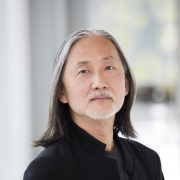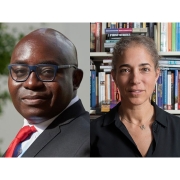Robert Aronowitz Sees Continuity in Prostate Cancer Screening's Ethically Fraught History

An ethically dubious medical research study from the 1950s and '60s, known as the “Bowery series,” foreshadowed and shared commonalities with prostate cancer screening and treatment measures as they are carried out today, argues University of Pennsylvania physician and historian Robert Aronowitz in two new publications.
In papers published in the American Journal of Public Health and the Bulletin of the History of Medicine, Aronowitz, professor and chair of the Department of History and Sociology of Science, characterizes the events then and the more recent screenings for prostate-specific antigen, or PSA, as part of one continuous story of how medical and lay people came to believe in the efficacy of population screening followed by aggressive treatment without solid supporting scientific evidence.
In 1951, a New York urologist began a study to determine whether biopsying the prostate glands of men without signs or symptoms, and then aggressively treating those individuals who had tissue diagnoses of cancer, could reduce deaths from prostate cancer. Though records are unclear, some men may have given a form of “informed consent” and some may have been aware that they were participating in research, Aronowitz found. But their vulnerable status, as homeless and alcoholic, calls into the question whether they were entering into the research with true free will and understanding. Given the state of clinical knowledge, he argues, these largely asymptomatic men clearly were also being exposed to undue risk.
Even though the prostate biopsy procedure today requires the removal of far less tissue and is less dangerous, Aronowitz argues, patients today are often not fully informed about risks and benefits of PSA screening. Many men today, like the Bowery men, have not been informed in the sense of knowing whether the test, and all that it may trigger is worth it or not. “When a medical procedure is offered at a population level with the potential to transform society and everything we think we know about the targeted disease," he says, "we ought to proceed with a very high level of caution, reflection, knowledge production, and evaluation."





